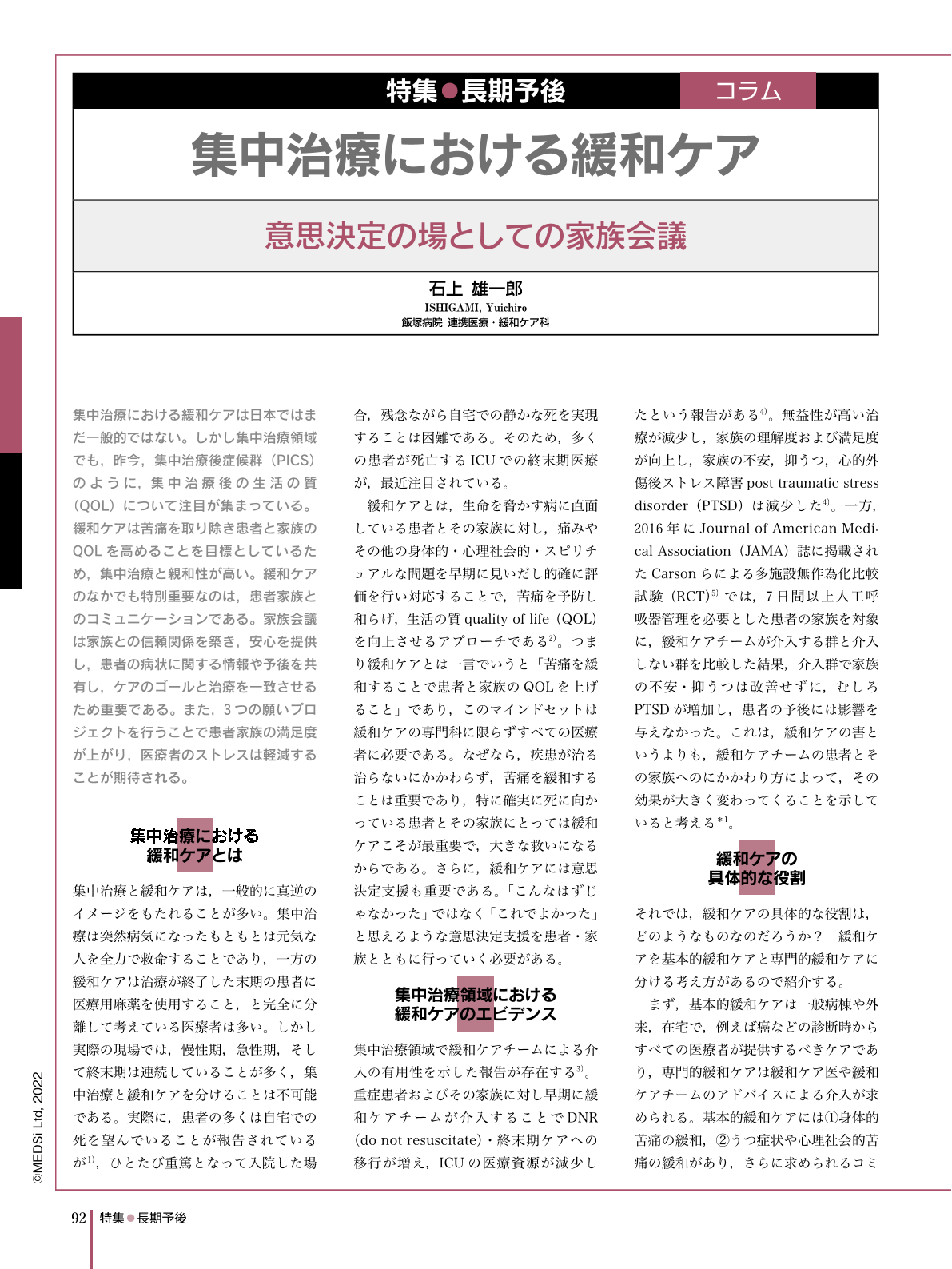Japanese
English
- 有料閲覧
- Abstract 文献概要
- 1ページ目 Look Inside
- 参考文献 Reference
集中治療における緩和ケアは日本ではまだ一般的ではない。しかし集中治療領域でも,昨今,集中治療後症候群(PICS)のように,集中治療後の生活の質(QOL)について注目が集まっている。緩和ケアは苦痛を取り除き患者と家族のQOLを高めることを目標としているため,集中治療と親和性が高い。緩和ケアのなかでも特別重要なのは,患者家族とのコミュニケーションである。家族会議は家族との信頼関係を築き,安心を提供し,患者の病状に関する情報や予後を共有し,ケアのゴールと治療を一致させるため重要である。また,3つの願いプロジェクトを行うことで患者家族の満足度が上がり,医療者のストレスは軽減することが期待される。
Palliative care in the intensive care unit is not yet a common practice in Japan. However, the patient's quality of life after the intensive care unit has been attracting attention recently, as in the case of post-intensive care syndrome. Palliative care is strongly connected to intensive care because it aims to eliminate suffering and improve the quality of life of patients and their families. One of the most important aspects of palliative care is communication with the patient's family. Family meetings are important to build trust with families, provide reassurance, share information about the patient's condition and prognosis, and ensure that the goals of care and treatment are aligned. The three wishes program is also expected to increase the satisfaction of the patient's family and reduce the stress of the medical staff.

Copyright © 2022, MEDICAL SCIENCES INTERNATIONAL, LTD. All rights reserved.


